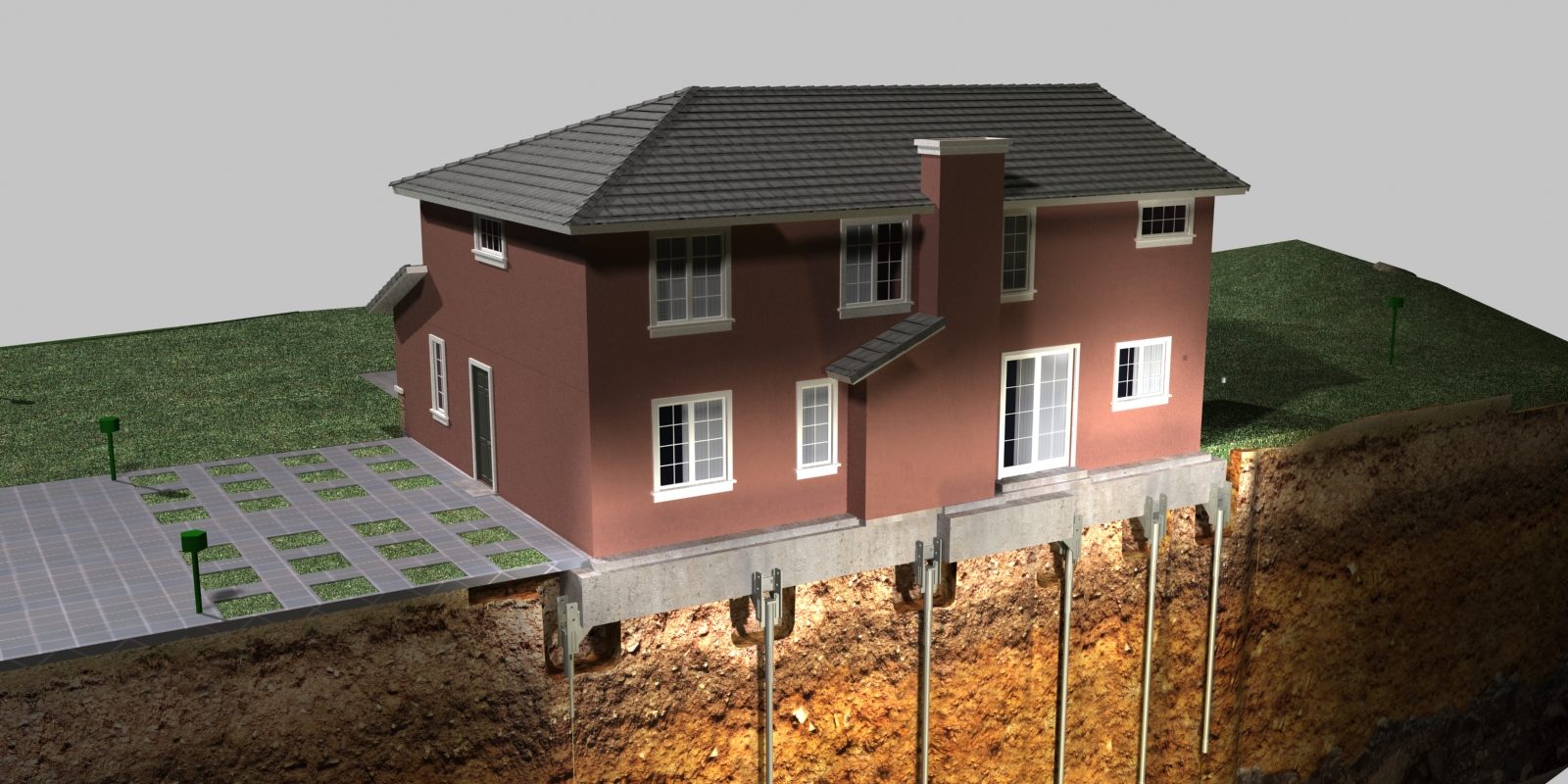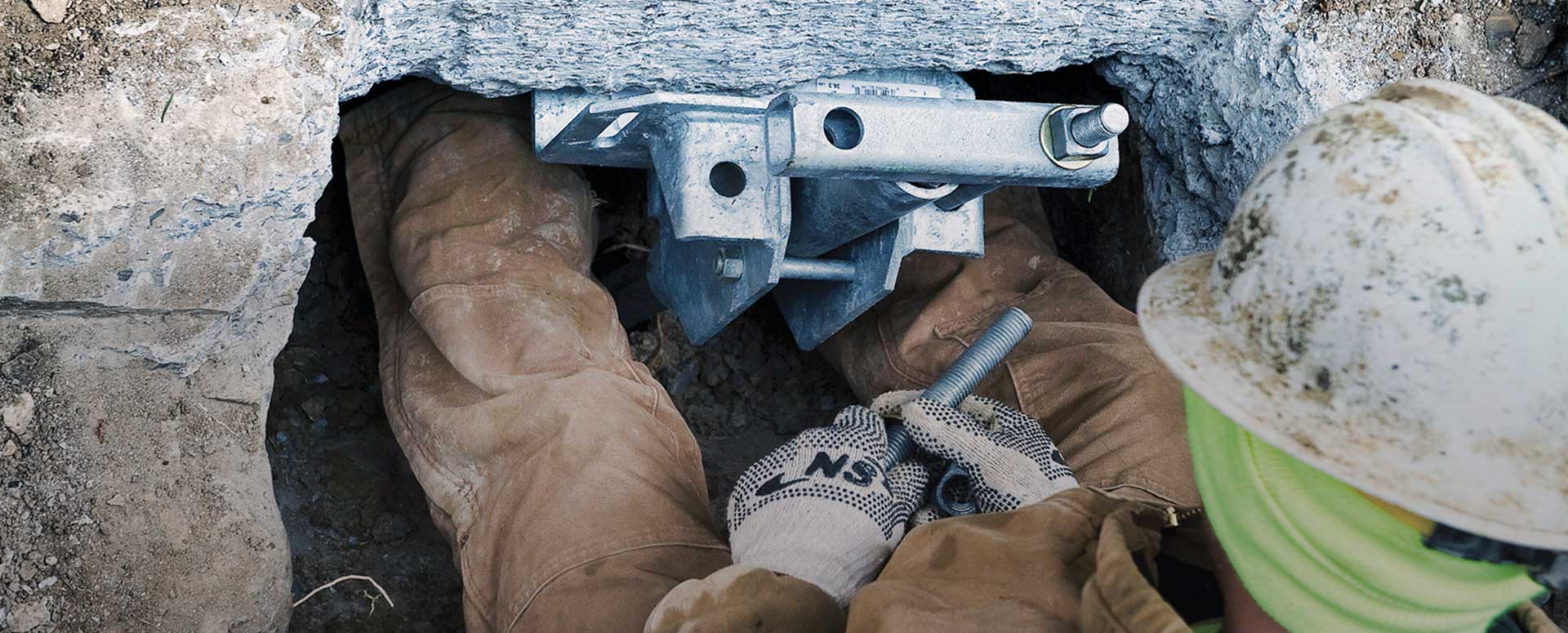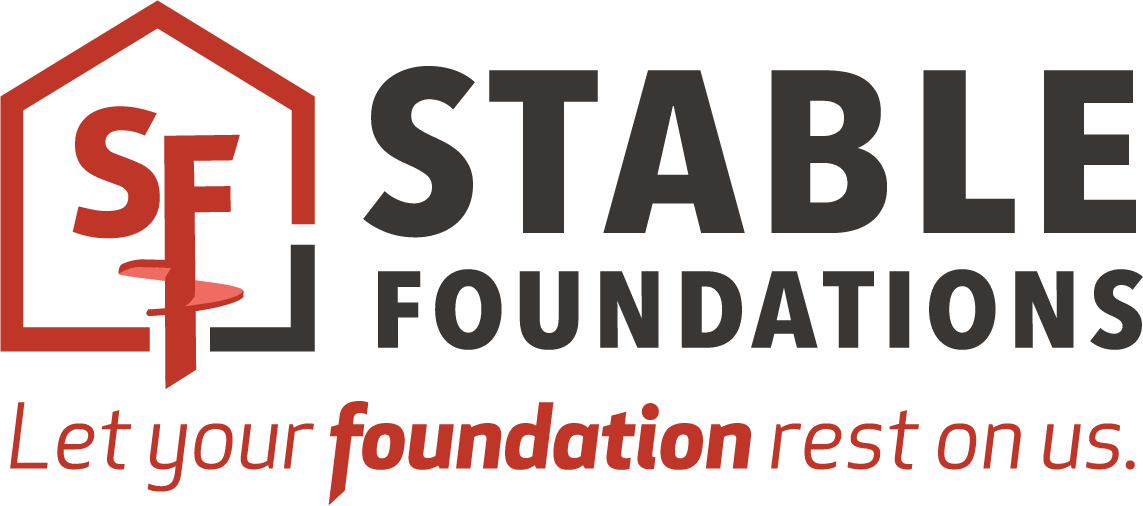Repair Uneven Floors With House Leveling from Stable Foundations
All foundations will settle over time, and while some settlement is normal and usually harmless, differential foundation settlement can lead to significant structural damage. If your floors slope, doors stick, or chimney tilts—you may be dealing with foundation damage due to settlement. At Stable Foundations, we offer Richmond house leveling and uneven floor repair services that not only address structural damage but also provide an opportunity to lift the home back to level.
Differential settlement will only persist, causing structural and cosmetic problems to get worse over time. Contacting the Richmond house leveling and uneven floor repair contractors at Stable Foundations at the first sign of foundation damage provides you with the best opportunity to reverse some of the damage done to your home. To learn more about our house leveling solutions, call us today at 804.798.7880! We provide free foundation inspections to Richmond and the surrounding area.

What’s Causing My Uneven Floors?
Everything You Need to Know About Foundation Settlement
Foundation settlement refers to the total vertical displacement of your foundation from its original position. Over time, all foundations will experience some form of settlement. This is because the soils under your foundation will inevitably move at some point, whether due to the weight of your home or changing weather conditions. Foundation settlement can vary in severity—whether your foundation settles uniformly or differentially or due to direct or indirect causes will determine the amount of structural damage it leaves behind. This can be experienced through uneven floors but with our Richmond house leveling and repair experts on your side that will be a problem of the past.
Direct and Indirect Causes of Foundation Settlement
The weight of your home will compress the soil beneath it over time. This is considered a direct cause of foundation settlement and is something that all homes experience. This form of settlement will typically occur within the first three years after your home is built and will most likely only result in cosmetic impurities, such as small drywall cracks.
Anything aside from the weight of your home that causes foundation settlement is considered an indirect cause. Indirect causes most likely lead to structural damage, though the severity of the structural damage could depend on how early the issue is caught and resolved. Some common indirect causes of settlement include the following:
- Flooding
- Drought
- Freeze-thaw cycles
- Earthquakes
- Poorly compacted fill soil
- Expansive soils
- Inadequate exterior water management
- Faulty gutter systems
- Poor construction
Differential v. Uniform Settlement
In addition to the two categories of foundation settlement causes, there are also two different types of foundation settlement.
Differential settlement occurs when the foundation settles at different rates throughout the home—meaning one side is sunken further than the other. Differential settlement is most often a result of an indirect cause and often leads to significant structural damage to the foundation and framework of a home.
Uniform settlement occurs when the foundation settles evenly throughout the home. This type of settlement is often a result of direct causes and is to be expected.
How Do I Know if I Need House Leveling?
If your foundation is undergoing differential settlement, it is time to consider hiring a house leveling contractor to repair the foundation and transfer the weight of your home to more stable soils. There are several signs you can look for to determine whether your home is being damaged by differential settlement. However, Stable Foundations is always one call away to answer any questions you may have or set you up with a free foundation inspection from one of our Richmond house leveling and uneven floor repair experts.
Signs of Differential Settlement
If your home is showing any of the following signs of differential settlement, you could be in need of Richmond house leveling and uneven floor repair:
- Uneven floors
- Stair-step cracks in brick or concrete foundation walls
- Large cracks in drywall
- Cracks around doors and windows
- Windows that won’t shut properly
- Jamming or sticking doors
- Tilting chimneys
- Cracks in concrete slab floors

How to Level a House
House leveling can typically be achieved through the use of a foundation repair method known as piering.
Level Uneven Floors with Helical Piers
When first built, your home’s foundation rests on comparatively shallow soil. While shallow soils are more prone to movement, the soils found at greater depths are more compact and capable of supporting the weight of your home. Helical piers are a method of foundation repair that transfers the weight of your home to soils farther from the surface. Over time, adjustments can be made to the piers that give you the opportunity to return your home back to level. Residents in Richmond have depended on our house leveling and uneven floor repair for years.
A few benefits of using helical piers for house leveling include:
- No heavy equipment required
- Works in limited access areas
- Quick installation
- Cost-effective
- Limited excavation required
- Transferrable limited lifetime warranty

